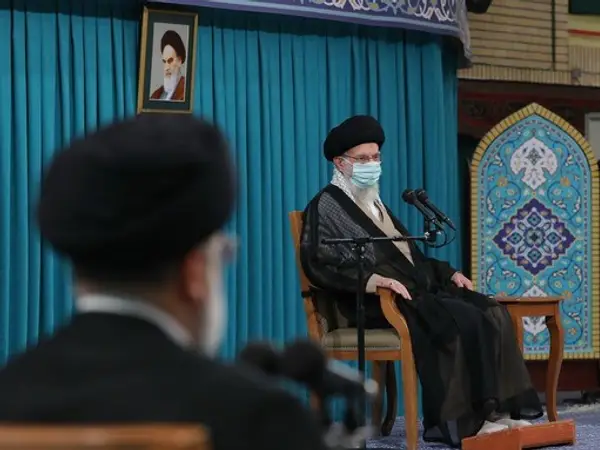Iran’s ruler Ali Khamenei has been absent from public view for two weeks, while some say that he has delegated the nuclear issue to President Ebrahim Raisi.
Khabar Online website has quoted reformist commentator Abbas Abdi on Wednesday as saying, "I have been informed by reliable sources that the leader has vested Rasi with the responsibility of deciding on the nuclear issue."
In the absence of Khamenei from the public scene for about two weeks, the handover gives rise to speculations whether the leader delegated part of his authority because of a medical emergency, or he simply wanted to shift the responsibility for a key decision to Raisi so that he could remain in a position to criticize any possible deal, if things do not work well.
Abdi noted that although it has been said over and over in Iran that accepting or rejecting a nuclear deal can be done only by the Supreme Leader, it is now evident that Raisi is in charge of the nuclear deal and whether he signs an agreement or rejects it, he will be responsible for it.
The Iranian government has not denied social media reports about Khamenei's illness. Meanwhile, the leader's office has cancelled two scheduled meetings with the Assembly of Experts members and Bassij militia during the past days.
In another development, a picture released by the official news agency IRNA last week about Khamenei's meeting with athletes, turned out to be at last three years old and the agency pulled the story. All this may indicate that Khamenei is not physically in a good position for public appearances.
Khamenei's previous absences ended with his powerful re-emergence to deny the report and discredit foreign media who went out of their way to say he was dead. That kind of a publicity stunt cannot be ruled out before more solid evidence emerges about his condition.
In still another development, former lawmaker Ahmad Mazani, a reformist figure, said in an interview with conservative Nameh News that Raisi and Majles Speaker Mohammad Bagher Ghalibaf should be held accountable for the consequences of any delay in reviving the 2015 nuclear agreement, the JCPOA. Like Abdi, Mazani also said, "The news that has reached us says that the Supreme Leader has delegated the responsibility for the revival of the JCPOA to President Raisi as the chairman of the Supreme Council of National Security."
Nonetheless, Abdi noted that still anyone who thinks Khamenei does not have the final say on the nuclear case, has no proper understanding of the status of the Supreme Leader and the significance of a nuclear deal for the Islamic Republic.
Abdi said, this explains why and how the Iranian parliament approved the JCPOA in 2015 within 20 minutes and the Guardian Council uncharacteristically did not find any fault in the decision made by the Majles.
In another development, the Jomhouri Eslami [Islamic Republic] newspaper, a daily founded by Khamenei, wrote in its editorial on Wednesday that "The key to lift the sanctions on Iran is in the hands of the Raisi Administration." The daily further called on the government to "end this story."
The editorial went on, "Now the people expect the Iranian government to solve this problem in this suitable situation and conclude several years of negotiations from a position of power."
